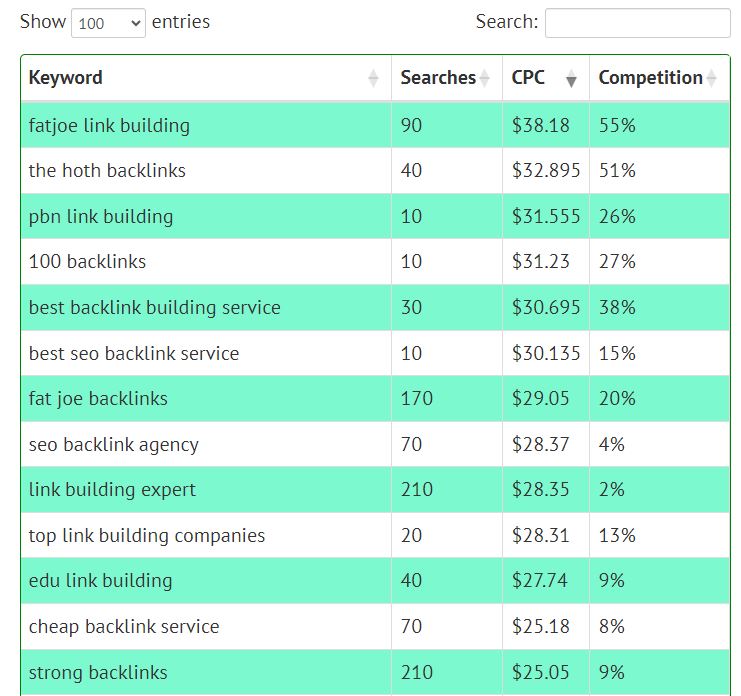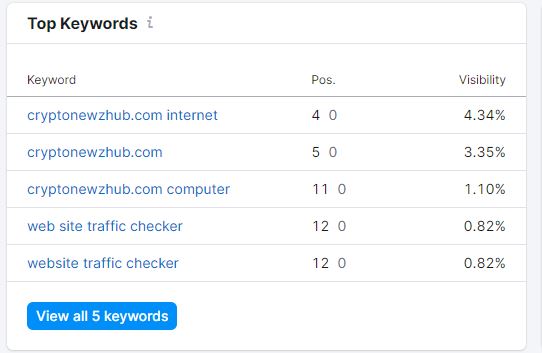Published on 20 March 2024

Keyword Research is all about identifying and analyzing search terms that people use in search engines.
In this blog post we explore the five most common keyword research mistakes you should avoid to ensure you get the most out of your SEO efforts.
The Lookkle Keyword Research Tool offers a comprehensive analysis of your chosen keyword. This is what it offers:
- Find new keywords: Enter a keyword phrase or topic related to your search. The tool generates a list of up to more than a thousand related keywords related to your chosen topic and location.
- Search volume insights: Each keyword shows the average number of monthly searches across major search engines. Understand the demand for specific terms.
- Cost per click (CPC): When thinking about advertising the tool shows the average monthly CPC for each keyword. Get an idea of the advertising costs on platforms like Google Ads.
- Keyword Competition: Understand the level of competition for each keyword. A 0% competition indicates low rivalry potentially leading to better search engine results.
- Sort and select: Easily sort keywords alphabetically by search volume CPC and competition. Choose the ideal keywords for your business.
- Content generation: Research selected keywords individually. Analyze top ranking pages on Google and create quality content based on user intent. Satisfy your audience's needs effectively.
Step-by-step keyword research strategies
Find keyword ideas
- Seed Keywords: Start with core terms related to your niche.
- Related Searches: Explore Google's related search suggestions.
- Long-tail keywords: These specific phrases often have lower competition and can attract targeted traffic.
- LSI (Latent Semantic Indexing): Identify semantically related terms.
Evaluate keyword difficulty and search volume
- TRUE Keyword Difficulty: Look beyond search volume. Consider how difficult it is to rank for a keyword.
- Search volume: Balance between high volume and relevance.
- User Intent: Understand why users search for certain terms.
Competitive analysis
- Spy on competitors: Study their top keywords.
- Tools: Use tools like SpyFu and SEMrush to uncover your keyword strategies.
- Identify Gaps: Find opportunities where you can outperform the competition.
Seasonal trends and evergreen keywords
- Stay seasonally informed: Optimize for trends and events (e.g. holidays industry season).
- Evergreen Keywords: These timeless terms stay relevant all year round.
Local keywords
- Think local: If your business serves a specific area focus on location-related keywords.
- Moz Local: Use tools like Moz Local to discover relevant local terms.
Plan your strategy
- Create a keyword list: Organize your researched keywords.
- Prioritize: Focus on high impact keywords.
- Content targeting: Make sure your chosen keywords align with your content topics.
The Five Most Common Mistakes to Avoid in Keyword Research
1. Ignore long-tail keywords
- Mistake: It can be tempting to focus exclusively on high-volume competitive keywords. However, neglecting long-tail keywords is a serious mistake. Long-tail keywords are more specific and often have lower search volume, but can generate targeted traffic. Ignoring them means missing out on potential conversions.
- Solution: Incorporate long-tail keywords into your research. Tools like Lookkle can help you identify relevant long-tail phrases related to your niche. These may have less competition and may increase your chances of getting a higher ranking.
2. Rely solely on search volume metrics
- Mistake: Blindly chasing keywords with high search volume without considering other factors can lead to disappointment. High volume does not always generate quality traffic or conversions. Some keywords may attract more casual users than serious buyers.
- Solution: Look beyond search volume. Consider the relevance of keyword difficulty and user intent by aiming for a balance between search volume and intent by choosing keywords that fit your content and meet the needs of your audience.
3. Neglecting competitive analysis
- Mistake: Not analyzing your competitors' keyword strategies can hinder your progress. Competitor research can provide valuable information about what works in your industry.
- Solution: Study your competitors' top keywords. Tools like Lookkle allow you to take a look at keywords and identify topics and areas where you can stand out and outperform the competition.
4. Ignore seasonal trends
- Mistake: Keywords are not static, they evolve with seasonal trends and events. Ignoring these developments can lead to missing out on potential opportunities. For example, the keyword “summer vacation destinations” does not produce good results in winter.
- Solution: Use tools like Google Trends to track the popularity of keywords over time, adjusting these words based on the seasons or specific moments of each trend. You must anticipate relevant holiday industry events and trends.
5. Forget local keywords
- Mistake: If your business operates locally, you shouldn't ignore local keywords. People often search for services or products using location-specific terms.
- Solution: Include keywords based on your business location. Use tools like Moz Local or simply use Google search to find more suggestions on this and get ideas on how to optimize the content.
Tips on SEO and Online Business
Next Articles
Previous Articles
Topics:
Windows Server |
Servers |
PHP |
SEO |
Internet Security |
Ubuntu |
Windows |
Operating Systems |
Javascript |
JQuery |
Business |
How To |
Marketing Digital |
Technology |
VideoGame |
Online Troubleshooting |
General |
Artificial Intelligence
















